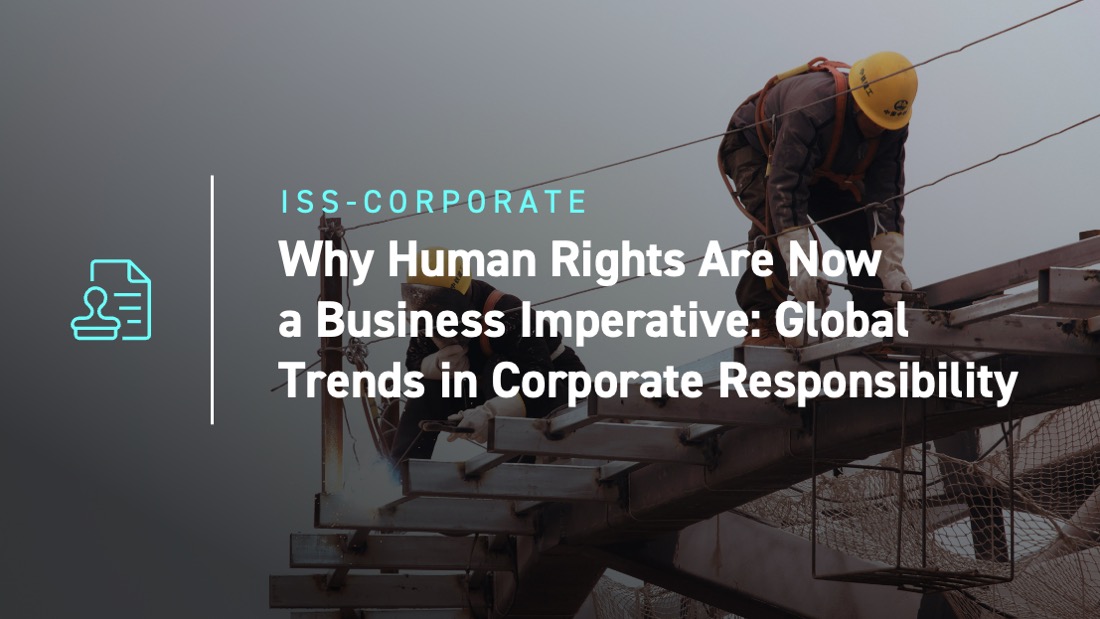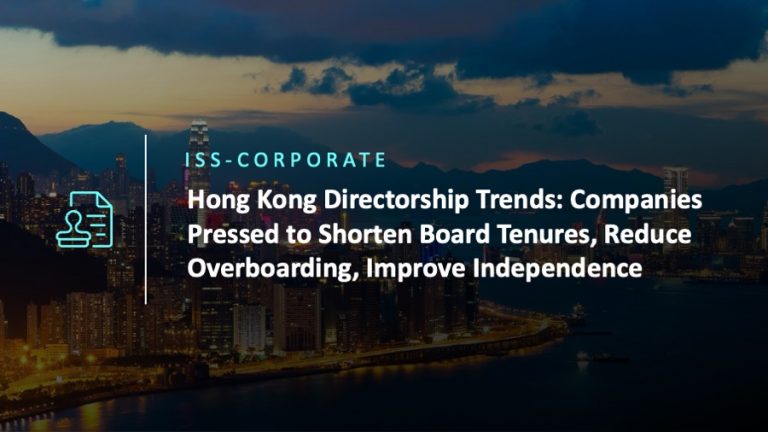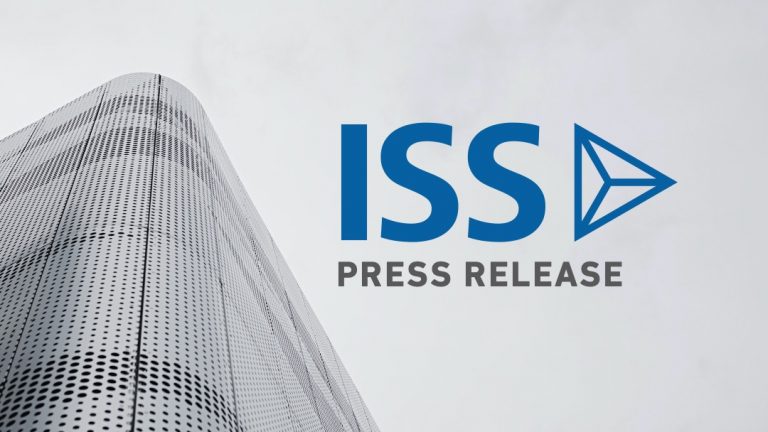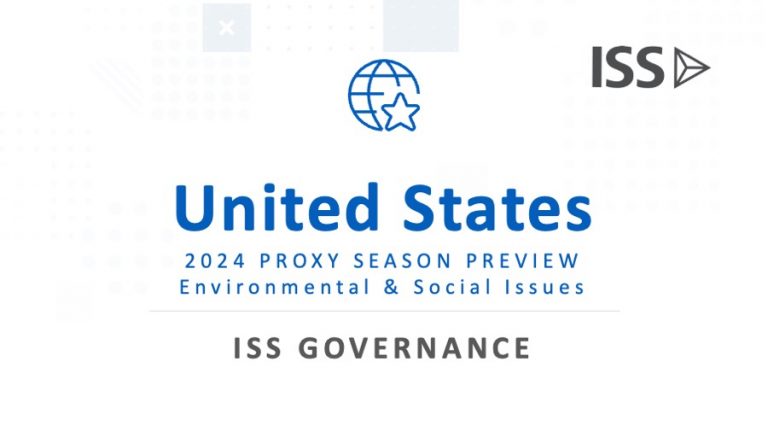Below is an excerpt from ISS-Corporate’s recently released article “Why Human Rights Are Now a Business Imperative: Global Trends in Corporate Responsibility.” The full article is available on the ISS-Corporate online library.
Corporations face growing pressure to demonstrate respect for human rights across their operations, value chains, and within the communities they serve. Increasingly, this takes the form of public commitments articulated through formal human rights policies, often aligned with international standards such as the Universal Declaration of Human Rights and the UN Guiding Principles on Business and Human Rights. These policies signify a commitment extending beyond legal compliance, often encompassing principles of fair employment, safe working conditions, and the prohibition of exploitative practices like forced labor.
Protecting Human Rights Across the Value Chain
Safeguarding human rights is particularly challenging within global value chains, where companies often lack direct control and operate in regions with varying levels of regulatory oversight and enforcement. In response, robust supplier codes of conduct are becoming essential, outlining specific expectations and embedding human rights considerations into contractual agreements.
Supporting these policies and codes is the rising adoption of human rights due diligence processes—systematic assessments of risk and independent audits—to monitor supplier compliance. This proactive approach yields substantial benefits: mitigating operational risks, strengthening reputation, attracting investors, and ultimately, fostering long-term business sustainability. Companies are realizing that a genuine commitment to human rights isn’t simply about ethical responsibility; it’s about building a more resilient and responsible enterprise.
A Global Surge in Human Rights Disclosures
ISS-Corporate reviewed human rights disclosures from large-cap companies (market capitalization exceeding $10 billion) to identify global trends in practices and reporting. Comparing disclosures as of June 30, 2025 to those of June 30, 2024, the analysis revealed a significant increase in human rights reporting across all regions. More companies are formalizing commitments to human rights and extending these commitments to their suppliers through dedicated policies. Additionally, there’s a growing trend of companies disclosing supplier audits that incorporate social and human rights considerations.
EMEA-based companies (primarily European firms) led in disclosure rates, with 81% reporting a human rights policy in 2025 (up from 77% in 2024) and 73% establishing formal human rights expectations for suppliers and conducting related audits. In the Americas, 60% of companies disclosed formal human rights commitments in 2025 (compared to 55% in 2024); supplier expectations increased substantially (from 44% to 54%), and 49% conducted supplier audits. Disclosure of human rights policies also improved in the Asia-Pacific region year-over-year. Notably, in Asia-Pacific, the percentage of companies conducting supplier audits exceeded those with disclosed human rights policies. This trend suggests that supplier due diligence practices may be more widespread than formal policy disclosures indicate.
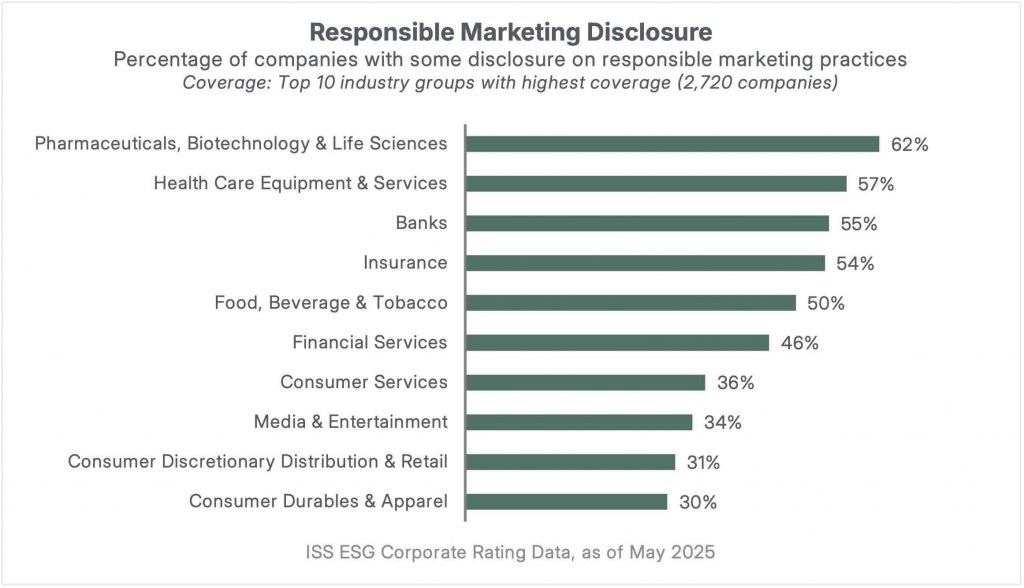
By:
Kosmas Papadopoulos, Executive Director, Head of Sustainability Advisory – Americas, ISS-Corporate
